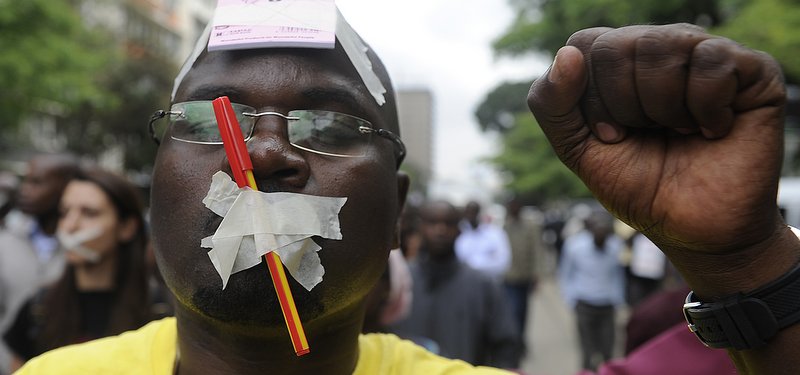Celebrating World Press Freedom Day 2018
[dropcap1]M[/dropcap1]ISA Zimbabwe is sharing its recommendations for improving media freedom, freedom of expression and access to information in Zimbabwe to commemorate World Press Freedom Day 2018. You can also download a PDF copy to print and share.
[highlight1]LAWS AND REGULATIONS[/highlight1]
Reform unconstitutional laws restricting media freedom
The government should urgently implement long-overdue legal reforms by aligning laws that restrict the media with the constitution. Laws due for reform include the information and privacy act (AIPPA), the Broadcasting Service Act, the Public Order and Security Act and sections of the Criminal Law (Codification and Reform) Act.
Implement the African Charter on Democracy, Elections and Governance
[getty src=”853425746″ width=”594″ height=”396″]
Ahead of the 2018 elections, Zimbabwe should put into effect the African Charter on Democracy, Elections and Governance, which it signed on 21th March 2018. The charter promotes the consolidation of democratic governance and human rights in Africa through the adoption of relevant clauses from the charter into domestic law and policies.
[highlight1]DIGITAL RIGHTS[/highlight1]
Ensure cyber-crimes and cyber-security laws don’t infringe on civil liberties
The government should formulate the cyber-security framework in line with national and regional principles protecting privacy of communication, private property and the right of all citizens to freedom of expression, media freedom and access to information.
[highlight1]MEDIA INDEPENDENCE[/highlight1]
Transform ZBC into a truly independent broadcaster
Authorities must ensure citizen participation in a transparent and democratic appointment process for the Zimbabwe Broadcasting Corporation board. They also need to secure and guarantee ZBC’s independence and accountability in carrying out its public service mandate.
[highlight1]MEDIA PLURALISM[/highlight1]
License community radio stations
The Broadcasting Authority of Zimbabwe should call for applications for community radio stations and license successful applicants as provided for by the Broadcasting Service Act.
[highlight1]SAFETY OF JOURNALISTS[/highlight1]
Create a safe working environment for journalists
[getty src=”824040322″ width=”594″ height=”396″]
The government and its security arms, as well as political parties, should take the lead, within and outside government, to promote and ensure the safety of journalists and media workers.
Investigate and prosecute crimes against media professionals
The police should investigate cases involving assaults and arrests of journalists and bring the culprits to book.
Implement the police-media action plan
The police and the media should implement the resolutions and action plans agreed to in December 2017. These aim to improve the professional working relationship between the media and the police through agreed work plans and time frames.
[highlight1]MEDIA ETHICS[/highlight1]
Tackle issues of media ethics and media capture
The media industry and, in particular, the Zimbabwe National Editors Forum should address concerns about media capture, the decline in professional ethics, and alleged corruption to reinforce media freedom, professionalism and accountability.
You can read more about media freedom in Zimbabwe in our State of the Media 2017 (PDF) report.
And you can also take a look at the Way Forward 2018 recommendations for MISA Lesotho, MISA Malawi and MISA Zambia.











